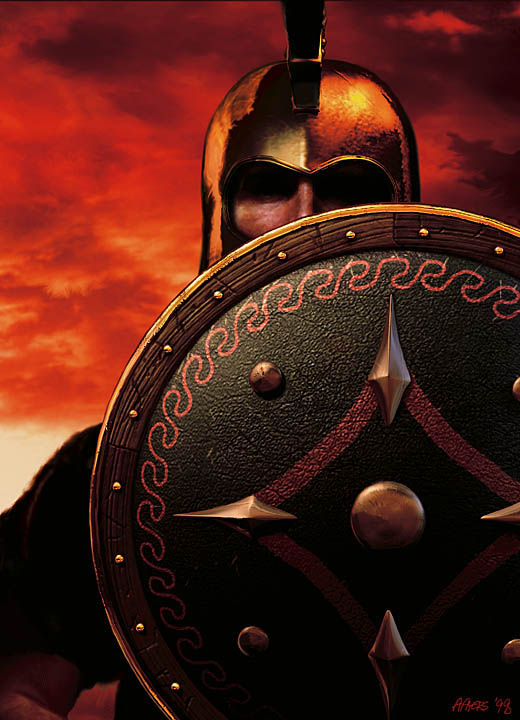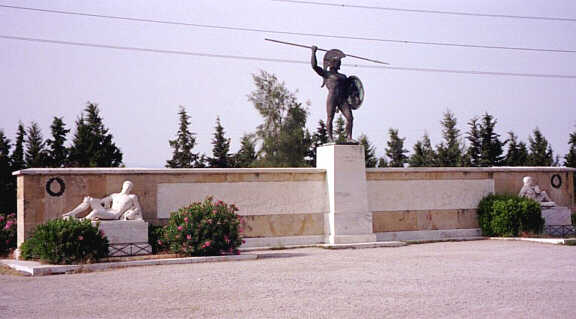One of the finest books I’ve read in the past decade is David Pressfield’s “Gates of Fire”, the amazing story of the defense of Thermopylae by brave Spartan soldiers, a gripping read and still popular, judging by it's Amazon Sales Rank:

Now we have a new movie based on the same subject, “300” which is a top-grossing film this week with box office at over $84m. I can't wait to see it:

It’s a great tale of courage and hardship, as we follow the life of a young Spartan as he learns the values of a true hero. Of course, the invasion at Thermopylae was impossible to defend, with zillions of invaders and only 300 young Spartans who knew that they would never walk-away from the field of battle.
Today, these brave warriors are honored with a memorial, at the site of their death in Thermopylae Greece:

The Spartans were famous for their athletic ability, unmatched anywhere in the ancient world, and even the local critters looked like Spartans.
This is a good review of 300 that notes that even though it's a take-off on a kiddie comic, the film has merit:
"300 preserves the spirit of the Thermopylae story.
The Spartans, quoting lines known from Herodotus and themes from the lyric poets, profess unswerving loyalty to a free Greece.
They will never kow-tow to the Persians, preferring to die on their feet than live on their knees.
If critics think that 300 reduces and simplifies the meaning of Thermopylae into freedom versus tyranny, they should reread carefully ancient accounts and then blame Herodotus, Plutarch, and Diodorus — who long ago boasted that Greek freedom was on trial against Persian autocracy, free men in superior fashion dying for their liberty, their enslaved enemies being whipped to enslave others."

